Association News
- Cannexus26: 25 Scholarships for APCDA Members only
- Open Letter from APCDA to Our Community
- New Area Council Chair: Baktiar Hasnan
- More Fascinating Presentations at the 2025 APCDA Hybrid Conference
- Don’t Miss These Fascinating Presentation at the 2025 APCDA Hybrid Conference
- Be a Global Bridge-Builder: Join APCDA’s International Collaboration Workgroup
- Your News Committee is Back!
- Check Out These 2025 APCDA Hybrid Conference Presentations
- President’s Message: Winter & Summer – Seasons for Rest, Reflection, Renewal & Nurturing of the Crop
- February Committee Council Report
- February Area Council Report
- Insight Exchange Program Details
- Using Your APCDA Member Benefits
- Henan Province: The Heart of China
- Valuable Insights from the 2024 APCDA Member/Friend Survey
- Empower the Future: Support APCDA’s Scholarship Funds
- Establishing the KazCDA Branch and Career Development Initiative in Kazakhstan
- APCDA Members and Friends at 2024 NCDA Conference
- Steps to Make a Difference: Summary of Annual Meeting Discussion
- Exploring Intersectionality: A Pilot Project
- Nurturing a GloCal Ecosystem for Career Professionals
- IAEVG Membership – A Benefit of APCDA Membership
- APCDA Logos for Members
We are pleased to share a generous opportunity extended to us by our friends at CERIC, Canada’s leading organization advancing education and research in career development. CERIC has offered 25 scholarships exclusively for APCDA members to attend their upcoming Cannexus26 Conference, scheduled for January 26–28, 2026.
Cannexus is one of the world’s largest and most respected career development conferences, bringing together professionals, educators, policymakers, and researchers to explore the latest innovations and practices shaping our field.
Key Highlights of Cannexus26:
January 26–27: Virtual Program — Participate from anywhere in the world, with live and on-demand access to high-impact sessions, panels, and keynotes.
January 28: In-person Program in Ottawa — A great opportunity if you plan to travel to Canada.
This collaboration reflects the strong international ties we continue to build, and we are thrilled to offer our members this global learning experience. Whether you’re a practitioner, researcher, or educator, Cannexus26 offers valuable insights and tools to enhance your impact.
If you are interested, please submit your expression of interest by July 15, 2025, using the link, Link to the Registration Form
Selections will give priority to diversity of representation across the Asia Pacific region and first-time applicants. Final recipients will be notified, and CERIC will share detailed registration instructions in late August.
We thank CERIC for this warm gesture of partnership, and we encourage all of you to consider applying and expanding your global network through this enriching conference.
The Asia Pacific Career Development Association reaffirms our resolve to support members and partners and to advocate for sustainable economic practices and ethical governance despite policy changes resulting from the recent United States election. We strive to maintain a balanced stance while positively contributing to societal progress.
However, we are deeply saddened by the recent hardships the United States has imposed by withdrawing from international commitments, dismantling federal agencies, layoffs, tariffs, restrictions on cultural exchanges, and related changes. Our mission is to uphold our organization’s principles by empathically addressing concerns that arise from current and subsequent governmental decisions. We vow to:
Treasure the intercultural learning and community building that results from APCDA activities and working together across borders and cultures.
Continue supporting the well-being of our stakeholders, irrespective of political developments.
Provide resources and assistance to those distressed by the current political situation.
Advocate for policies that promote the interests of ordinary people and adjust to changes such as tariffs and funding alterations.
Monitor socio-political and economic developments closely to guide our advocacy and support efforts.
Uphold our core values of integrity, inclusiveness, and human rights, regardless of the political landscape.
This policy statement strengthens our organization’s resolve to ensure that all actions and decisions are informed, guided by our founding principles, and dedicated to serving the diverse needs of our Asia Pacific communities and beyond.
 We are pleased to announce that Mr. Baktiar Hasnan agreed to serve as Chair of the Area Council, taking the baton from Mr. Yoshinobu Ooi. This transition reflects a continued commitment to experienced and regionally grounded leadership within APCDA.
We are pleased to announce that Mr. Baktiar Hasnan agreed to serve as Chair of the Area Council, taking the baton from Mr. Yoshinobu Ooi. This transition reflects a continued commitment to experienced and regionally grounded leadership within APCDA.
Mr. Hasnan has served with distinction as Malaysia’s Country Representative for several years, during which he demonstrated unwavering commitment to strengthening career development practices across the region. His deep understanding of the local and regional landscape, combined with his collaborative approach, has made him a valuable voice in the APCDA community.
His long-standing service and engagement with APCDA, makes him an ideal candidate to lead the Area Council. We are confident that under his guidance, the Council will continue to foster stronger ties between country representatives, promote best practices, and support the growth of career development across the Asia-Pacific.
We extend our sincere appreciation to Mr. Yoshinobu Ooi for his dedicated service and welcome Mr. Baktiar Hasnan as he steps into this new leadership position. For more information, please read an earlier article about him: Introducing Baktiar Hasnan: Celebrating a Champion of Career Development.
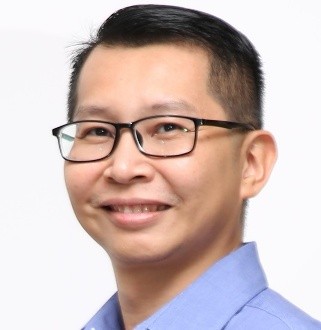 #112b Preparing for the Future: Exploring Employability and Entrepreneurship Antecedents of Uni Students with Dr. William Gunawan, Missiliana Riasnugrahani and Teddy Indra Budiwan
#112b Preparing for the Future: Exploring Employability and Entrepreneurship Antecedents of Uni Students with Dr. William Gunawan, Missiliana Riasnugrahani and Teddy Indra Budiwan
Unlocking the Entrepreneurial Mindset: Join the Unveiling of Ground-breaking Research at APCDA 2025
This compelling study dives deep into the entrepreneurial intentions of over 1,500 university students across Java, Indonesia, using the powerful framework of the Theory of Planned Behavior (TPB). The research reveals a transformative insight: it’s not just about environment or luck—individual traits like career optimism, self-efficacy, and perceived employability are the most potent drivers of entrepreneurial intention. Career strategies like networking and planning further empower students, while social influence plays only a marginal role.
The research reveals a transformative insight: it’s not just about environment or luck—individual traits like career optimism, self-efficacy, and perceived employability are the most potent drivers of entrepreneurial intention. Career strategies like networking and planning further empower students, while social influence plays only a marginal role.
Whether you’re a researcher, educator, policymaker, or practitioner in career development or entrepreneurship, this presentation will offer evidence-based guidance for fostering a new generation of resilient, opportunity-ready entrepreneurs.
🔹 Discover the psychological and strategic factors that ignite entrepreneurial ambitions
🔹 Engage with actionable insights to enhance your teaching, mentoring, or program design
🔹 Explore how to bridge the gap between employability, optimism, and business creation
Be part of this essential conversation. Let’s co-create the future of entrepreneurship—one empowered student at a time.

#226b Supporting Students in Developing STEM Professional Identities through Career Adaptability with Dr Sue Mate and Melanie Evangelista
How do career development practitioners (CDPs) navigate the complex task of preparing students for the evolving world of STEM careers? In this presentation, we’ll share insights from case studies that reveal how adaptable CDPs craft narratives to help students build strong, relevant professional identities in STEM.
We’ll explore the nuanced ways CDPs respond to challenges in their role—highlighting how their adaptability and deep understanding of both the labour market and their own professional identity can foster employability capital for their students.
Join us as we unpack how career practitioners are key players in shaping career-ready STEM graduates for both national and global markets.
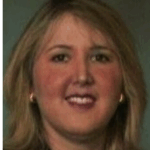 Dr. Heather Zeng, presentation 113 The Ultimate School Counselor Career Toolkit: Resources for a Dynamic Career Planning Program (with Dr. Allison Paolini, Dr. Diane Mandina,and Dr. Barbara Cooper), believes that it is imperative for school counselors to work tenaciously to create a school climate that is uplifting, culturally responsive, safe, engaging, inclusive, motivational, inspiring, and student centered to help students reach their fullest potential and achieve their academic and vocational goals. We hope that attending our presentation will allow you to see the passion that we have for supporting students who are moving into the field of school counseling. This presentation will allow participants to walk away with a toolkit of resources which can be implemented readily in the field within diverse school communities.
Dr. Heather Zeng, presentation 113 The Ultimate School Counselor Career Toolkit: Resources for a Dynamic Career Planning Program (with Dr. Allison Paolini, Dr. Diane Mandina,and Dr. Barbara Cooper), believes that it is imperative for school counselors to work tenaciously to create a school climate that is uplifting, culturally responsive, safe, engaging, inclusive, motivational, inspiring, and student centered to help students reach their fullest potential and achieve their academic and vocational goals. We hope that attending our presentation will allow you to see the passion that we have for supporting students who are moving into the field of school counseling. This presentation will allow participants to walk away with a toolkit of resources which can be implemented readily in the field within diverse school communities.
 Ruth McAteer, presentation #124 Skills and Top Tips to Make Events and Activities More Accessible; A Deaf Perspective to Transform the Careers Industry, believes that, in a world that often prioritizes speed and efficiency over empathy and understanding, the need for inclusivity in every sector, especially in careers and educational events, has never been more urgent. Four years ago, my life took an unexpected turn when suddenly, with no warning, I lost my hearing. Navigating this new reality, I experienced firsthand the barriers that individuals with disabilities face in attending events. The challenges were not just logistical; they were emotional and psychological. I realized that when planning events, the careers and educational industry often overlooks the needs of those who don’t fit the traditional mold. Yet, through this adversity, I discovered my passion for advocating for inclusivity. Throughout the session, I will interweave my lived experiences with each topic.
Ruth McAteer, presentation #124 Skills and Top Tips to Make Events and Activities More Accessible; A Deaf Perspective to Transform the Careers Industry, believes that, in a world that often prioritizes speed and efficiency over empathy and understanding, the need for inclusivity in every sector, especially in careers and educational events, has never been more urgent. Four years ago, my life took an unexpected turn when suddenly, with no warning, I lost my hearing. Navigating this new reality, I experienced firsthand the barriers that individuals with disabilities face in attending events. The challenges were not just logistical; they were emotional and psychological. I realized that when planning events, the careers and educational industry often overlooks the needs of those who don’t fit the traditional mold. Yet, through this adversity, I discovered my passion for advocating for inclusivity. Throughout the session, I will interweave my lived experiences with each topic.
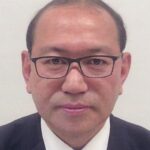 Kunimitsu Kuki, presentation #211 A Collaborative Initiative Involving Nursing Staff, of the HR Department and Career Consultants, explains that, at a Japanese company, I was involved in an initiative to reduce mental health issues in the workplace to zero. This was done through close collaboration between career consultants, occupational health nurses, and the Human Resources department. We provided communication and anti-harassment training for managers to help them lead with respect and understanding. This approach helped create a healthier and more supportive work environment.
Kunimitsu Kuki, presentation #211 A Collaborative Initiative Involving Nursing Staff, of the HR Department and Career Consultants, explains that, at a Japanese company, I was involved in an initiative to reduce mental health issues in the workplace to zero. This was done through close collaboration between career consultants, occupational health nurses, and the Human Resources department. We provided communication and anti-harassment training for managers to help them lead with respect and understanding. This approach helped create a healthier and more supportive work environment.
 Dr. Sue Mate, presentation #216b Career Design through Narrative Counselling: Embracing Diversity and Fostering Inclusive Workspaces (with Freda Zapsali), are excited to be presenting at the APCDA on how we can build more neuroinclusive workplaces—spaces where neurodivergent students feel safe to share their identities, access support, and truly thrive. This session will focus on the experiences of students with ADHD during workplace learning placements, and how targeted supports can make all the difference. We’ll also explore how narrative counseling, and the integration of AI learning tools can empower career counsellors to better support neurodiverse students as they transition from higher education to professional life.
Dr. Sue Mate, presentation #216b Career Design through Narrative Counselling: Embracing Diversity and Fostering Inclusive Workspaces (with Freda Zapsali), are excited to be presenting at the APCDA on how we can build more neuroinclusive workplaces—spaces where neurodivergent students feel safe to share their identities, access support, and truly thrive. This session will focus on the experiences of students with ADHD during workplace learning placements, and how targeted supports can make all the difference. We’ll also explore how narrative counseling, and the integration of AI learning tools can empower career counsellors to better support neurodiverse students as they transition from higher education to professional life.
 Momoko Asaka, presentation #221 The State of Reskilling in Japan, points out that Japan faces unique challenges when it comes to reskilling its workforce. Despite increasing global attention on upskilling and lifelong learning, Japan has been slow to adopt widespread reskilling initiatives. In this session, I will present findings from a recent national survey showing that while large companies are starting to take the lead—particularly in areas such as data utilization, leadership, and AI—many organizations and individuals remain hesitant. The focus on mid-career and senior employees underscores an urgent need to rethink how we support ongoing career development in Japan. I’ll explore why this is happening, what makes Japan unique in this regard, and how career professionals like us can support change.
Momoko Asaka, presentation #221 The State of Reskilling in Japan, points out that Japan faces unique challenges when it comes to reskilling its workforce. Despite increasing global attention on upskilling and lifelong learning, Japan has been slow to adopt widespread reskilling initiatives. In this session, I will present findings from a recent national survey showing that while large companies are starting to take the lead—particularly in areas such as data utilization, leadership, and AI—many organizations and individuals remain hesitant. The focus on mid-career and senior employees underscores an urgent need to rethink how we support ongoing career development in Japan. I’ll explore why this is happening, what makes Japan unique in this regard, and how career professionals like us can support change.
 Abbas Aboobacker, Sustainable Success Coach, presentation #232 Revolutionizing Career Coaching with AI Solutions, has designed a presentation specifically to help career professionals embrace the power of AI in a hands-on, practical way. With over 25 years in IT and 20 years in training and coaching, he has explored how AI is reshaping the future of career development. In this session, he will walk you through:
Abbas Aboobacker, Sustainable Success Coach, presentation #232 Revolutionizing Career Coaching with AI Solutions, has designed a presentation specifically to help career professionals embrace the power of AI in a hands-on, practical way. With over 25 years in IT and 20 years in training and coaching, he has explored how AI is reshaping the future of career development. In this session, he will walk you through:
- How to build an automated AI-based career assessment tool to evaluate client skills, interests, and potential in minutes.
- Using ChatGPT API to automate assessments, generate coaching reports, and enhance productivity.
- Steps to create your own customized GPT tailored for your coaching niche.
Leveraging AI for personal branding—from content creation to automating LinkedIn messages for better client outreach. - Designing full coaching programs using AI, with templates and tools to scale your services.
This session is not just about theory – it’s a roadmap for coaches and counselors who want to future-proof their practice, serve clients more efficiently, and create lasting impact through smart, ethical use of AI.
 Professor Dian Ratna Sawitri, Ph.D, Universitas Diponegoro, Indonesia, presentation #326a How Dare You Become a Leader? A Social Cognitive Model of Early Career Women Academics, explores how leadership journeys unfold—especially for women in academia. Join us for an eye-opening presentation that explores the bold question: How dare you become a leader? Through the lens of Social Cognitive Career Theory (SCCT), this session delves into the dynamic pathways that early career women academics navigate as they aspire to lead in higher education. We will spotlight the roles of leadership self-efficacy, outcome expectations, goals, and environmental supports and barriers that shape leadership emergence. Grounded in recent research and lived experiences, it will highlight both the struggles and triumphs of women who choose to rise despite implicit bias, institutional obstacles, and societal expectations.
Professor Dian Ratna Sawitri, Ph.D, Universitas Diponegoro, Indonesia, presentation #326a How Dare You Become a Leader? A Social Cognitive Model of Early Career Women Academics, explores how leadership journeys unfold—especially for women in academia. Join us for an eye-opening presentation that explores the bold question: How dare you become a leader? Through the lens of Social Cognitive Career Theory (SCCT), this session delves into the dynamic pathways that early career women academics navigate as they aspire to lead in higher education. We will spotlight the roles of leadership self-efficacy, outcome expectations, goals, and environmental supports and barriers that shape leadership emergence. Grounded in recent research and lived experiences, it will highlight both the struggles and triumphs of women who choose to rise despite implicit bias, institutional obstacles, and societal expectations.
✨ Let’s challenge stereotypes. Let’s build a change model.
🎓 Let’s ask the question that transforms: How dare you NOT become a leader?
 Mai Shimeng, presentation #332 I Ching, Zhong-Yong Model, and Hope-Action Theory: Equipping Chinese Students in the BANI World (with Shu Yumian), ask, in this BANI world, how can Chinese students navigate uncertainty and thrive? Discover how career practitioners in China integrate ancient Chinese philosophy to equip students with mental strength, balanced decision-making, and proactive hope. Whether you’re an educator, student, or lifelong learner, join us to unlock strategies to dance with the changes and handle uncertainty with elegance.
Mai Shimeng, presentation #332 I Ching, Zhong-Yong Model, and Hope-Action Theory: Equipping Chinese Students in the BANI World (with Shu Yumian), ask, in this BANI world, how can Chinese students navigate uncertainty and thrive? Discover how career practitioners in China integrate ancient Chinese philosophy to equip students with mental strength, balanced decision-making, and proactive hope. Whether you’re an educator, student, or lifelong learner, join us to unlock strategies to dance with the changes and handle uncertainty with elegance.
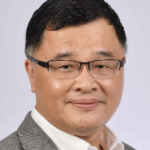 Dr. Kim Yin Chan, presentation #236b Entrepreneurship-Professionalism-Leadership Framework for Lifelong Career Development and Research (with Regena Ramaya), address the questions:
Dr. Kim Yin Chan, presentation #236b Entrepreneurship-Professionalism-Leadership Framework for Lifelong Career Development and Research (with Regena Ramaya), address the questions:
- What are the dimensions in which individuals can grow their careers over a lifetime?
- What’s a theoretical framework for 21st century, Protean and boundaryless careers that relates to “T-shaped” metaphor in the human resource development literature?
These are some questions driving a team of vocational psychology researchers concerned with lifelong career development for employability in Singapore’s fast changing urban economy. Discover the Entrepreneurship-Professionalism-Leadership (EPL) framework for boundaryless careers and learn how you can use the EPL framework and measures as part of lifelong career development, especially in the context of knowledge-based, innovation economies and rapidly aging societies.
 Tran Thi Ngoc Thuy, presentation #313 Career Orientation for high schoolers in Mekong Delta, Viet Nam (with Le Thi Phuong Lien), explain that the Mekong Delta region of Vietnam is undergoing significant changes due to the dual impact of climate change and shifting labor market demands brought on by infrastructure development. In response, the “Well-Informed Career Decision” program for high schools in the region has moved beyond traditional career orientation to adopt a more systematic and proactive approach. Rather than simply providing information, the program equips students with practical tools and decision-making frameworks—such as Holland’s Theory of Career Choice and access to reliable labor market resources—to help them make thoughtful, informed career choices. This session aims to offer fresh perspectives and region-specific insights for career development professionals working to support students in an increasingly complex world of work.
Tran Thi Ngoc Thuy, presentation #313 Career Orientation for high schoolers in Mekong Delta, Viet Nam (with Le Thi Phuong Lien), explain that the Mekong Delta region of Vietnam is undergoing significant changes due to the dual impact of climate change and shifting labor market demands brought on by infrastructure development. In response, the “Well-Informed Career Decision” program for high schools in the region has moved beyond traditional career orientation to adopt a more systematic and proactive approach. Rather than simply providing information, the program equips students with practical tools and decision-making frameworks—such as Holland’s Theory of Career Choice and access to reliable labor market resources—to help them make thoughtful, informed career choices. This session aims to offer fresh perspectives and region-specific insights for career development professionals working to support students in an increasingly complex world of work.
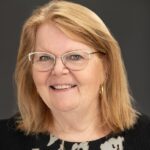 Dr. Roberta Borgen, presentation #314 Embracing Small-Scale, Rapid Research Design: Building an Evidence-Base for the Future (with Cassie Taylor), spent the first part of her career (that has now spanned almost 5 decades) meeting with individuals, facilitating workshops, and following processes and curricula developed by others to help the people she worked with get and keep “good” jobs. Some of what she did was very effective – but what worked well for some people, sadly, didn’t always work as well for others. Success seemed a bit random – it was like wandering in a deep forest or on an endless open desert without a compass. she developed strong relational skills but, without formal career development training, she really didn’t understand what she was doing – or why.
Dr. Roberta Borgen, presentation #314 Embracing Small-Scale, Rapid Research Design: Building an Evidence-Base for the Future (with Cassie Taylor), spent the first part of her career (that has now spanned almost 5 decades) meeting with individuals, facilitating workshops, and following processes and curricula developed by others to help the people she worked with get and keep “good” jobs. Some of what she did was very effective – but what worked well for some people, sadly, didn’t always work as well for others. Success seemed a bit random – it was like wandering in a deep forest or on an endless open desert without a compass. she developed strong relational skills but, without formal career development training, she really didn’t understand what she was doing – or why.
When she began graduate studies, 16 years after starting in the career development sector, she learned about the theories that had informed the tools and activities that she had been using in her work. She began to understand the why of her work – and built a bigger toolkit of what might be helpful for the individuals she was serving. However, some of the theory seemed out of touch with the day-to-day realities of the people in her workshops and many of the tools had been developed for very different contexts.
As part of her Masters and PhD degree programs, she learned to be a more critical consumer of research, and also how to conduct research on her own, research that was relevant to the specific time, culture, and context in which she was working. Sometimes her research results confirmed her hypotheses (i.e., she wasn’t surprised by the results but learned that her intuition and hunches had been on the right track). Other times, her research results were unexpected, nudging her approach into new, more effective directions. Big research projects, however, can be time-consuming and expensive, so they are often conducted by academics or research firms – people who may not be as closely connected to current contexts and challenges as the career development professionals who daily engage in front-line work.
In more recent years, their research has involved partnerships with front-line workers, community-based service providers, individual workers and job-seekers, government funders, and others interested in contributing to evidence-based practice. Together, they have learned that each person’s contribution to the research doesn’t have to be onerous or time-consuming. Instead, they encourage their partners to integrate a research mindset into their day-to-day work, resulting in “research off the side of your desk” or micro-research projects. They look forward to sharing practical tips for engaging in small research tasks that, together, will have big impacts on career development practice.
 Dr. Sujin Kim, presentation #316a Exploring the Impact of Working Holiday Experiences on Young Adults’ Career Development, explains that working holiday programs offer young adults a unique opportunity to live, work, and grow in unfamiliar settings—but how do these experiences influence their long-term career development? Drawing on emerging ideas and hypotheses, she will share early reflections from a developing research project that considers the potential career impacts of working holiday experiences, and ask:
Dr. Sujin Kim, presentation #316a Exploring the Impact of Working Holiday Experiences on Young Adults’ Career Development, explains that working holiday programs offer young adults a unique opportunity to live, work, and grow in unfamiliar settings—but how do these experiences influence their long-term career development? Drawing on emerging ideas and hypotheses, she will share early reflections from a developing research project that considers the potential career impacts of working holiday experiences, and ask:
- What kinds of learning and identity shifts occur during these experiences?
- How might career practitioners better support young adults in connecting international experiences with their evolving career paths?
 Jeremiah Wong, presentation #334 Career Counseling with Focused Case Conceptualization Model: A Case Studies Approach to Challenging and Complex Cases (with Dr Jonathan Sperry), believe that career development practitioners (CDPs) are living in the “era of accountability” in which they are increasingly expected to provide services that are effective. Increasingly, more professional bodies and organizations are also requiring demonstrated accountability and competence in our career service delivery. Discover how to:
Jeremiah Wong, presentation #334 Career Counseling with Focused Case Conceptualization Model: A Case Studies Approach to Challenging and Complex Cases (with Dr Jonathan Sperry), believe that career development practitioners (CDPs) are living in the “era of accountability” in which they are increasingly expected to provide services that are effective. Increasingly, more professional bodies and organizations are also requiring demonstrated accountability and competence in our career service delivery. Discover how to:
- Build precise, theory-informed career case conceptualizations in just 15 minutes
- Apply career developmentmodels meaningfully into career counselling and career coaching
- Operationalize client insights across goals, interventions, and predictive planning
- Explore a real-world case study—revealing career misfit, burnout, and the root of quiet quitting
- Integrate AI to co-conceptualize case data with you.
The Asia Pacific Career Development Association (APCDA) is launching an exciting new initiative – the International Collaboration Workgroup – and we’re calling on bold, visionary members to step forward and be a part of this exciting journey.
This workgroup will be at the heart of APCDA’s efforts to build strong, strategic alliances with global and regional organizations. These may include the International Labour Organization (ILO), UNESCO, the OECD, UNDP, APEC, and many others that are shaping education, workforce, and career development policies worldwide. Through these partnerships, APCDA aims to amplify our collective voice, influence regional and international policy, and bring tangible benefits to our members and the communities we serve.
Members of the workgroup will help initiate, coordinate, and sustain meaningful partnerships that align with APCDA’s mission and future goals. This includes co-developing events and research projects, drafting policy or advocacy statements, facilitating global knowledge exchanges, and representing APCDA in international forums. These efforts will not only elevate APCDA’s visibility on the world stage, but also open opportunities for new funding streams, cutting-edge research, and collaborative innovation.
We are currently seeking nominations for three workgroup members, each serving a two-year term (renewable once). Whether you bring experience in international career development public policy, government relations, research, or nonprofit partnerships – or simply have the passion to contribute – your perspective and commitment are welcome. We are especially looking for a diverse team of professionals who reflect the vibrant, multicultural spirit of APCDA.
Joining this workgroup is more than just a service opportunity. It’s a chance to learn, grow, and shape the future in the Asia Pacific region and beyond. You’ll work alongside experienced professionals and global thought leaders while making meaningful contributions to our profession. You’ll gain insights into international trends, expand your professional network, and build a portfolio of work that reflects your leadership and impact. Most importantly, you’ll be helping APCDA play a stronger role in influencing policies, programs, and resources that benefit career development professionals and clients across our region.
This initiative is aligned with APCDA’s core mission and broader strategic direction, specifically around promoting collaboration throughout the Asia Pacific region, advocating for inclusive workforce policies, supporting practitioners in conflict zones, developing cross-cultural resources, expanding research, and strengthening financial sustainability among others. As part of the International Collaboration Workgroup, you’ll be directly contributing to these long-term goals while helping to shape a more connected and empowered future for our field.
Candidate’s Profile
We are seeking for three candidates with a strong leadership track record and diverse experience in career development -whether academia, private practice, secondary or higher education. Ideal candidate must be interested in global advocacy and international collaboration, preferably serving or having served in past leadership positions for national, regional or international career development professional bodies.
Deadline to Nominate: April 30, 2025
To Submit your nomination: [Click Here]
Nominations will be reviewed by the Workgroup Chair and Co-Chair, with an emphasis on creating a team that is regionally diverse, professionally skilled, and united for a shared purpose.
APCDA is a registered non-profit organization, hence working with the International Collaboration Workgroup is a voluntary role.
If you’re passionate about making a difference and building global bridges, we encourage you to nominate yourself or a colleague today. Let’s shape the future – together.
 Momoko Asaka, 2022-2023 President of APCDA, CEO of Veriteworks
Momoko Asaka, 2022-2023 President of APCDA, CEO of Veriteworks
 Catherine Hughes, Lecturer – Career Education, RMIT University; Career Development consultant, Grow Careers
Catherine Hughes, Lecturer – Career Education, RMIT University; Career Development consultant, Grow Careers We aim to strengthen your weekly news with some fresh articles on career development practice topics of interest to APCDA members.
Would you like to join us on the News Committee?
- As a News Committee member, you won’t need to write articles, but you are welcome to if you wish.
- As a News Committee member, we encourage you to find other APCDA members who may be interested in writing articles of interest to our members.
If you would like to be a News Committee Member, please express your interest in an email to the News Committee: News@AsiaPacificCDA.org
#115 Leading Resource Integration and Collaboration: For a Comprehensive Career Development Ecosystem
by Matthew Sin, Master Trainer of Career Development (NCDA), Founder of the Life Development Institute & HK Life Planning Association
 Are fragmented career resources and siloed systems slowing down your country’s or region’s workforce development? Are educators, families, and employers struggling to collaborate, leaving students unprepared and adults unsupported in their transitions? These are global challenges — and they demand the solution of collaboration. If you’re passionate about transforming career development from fragmented efforts into a cohesive, life-spanning ecosystem, this is the session for you.
Are fragmented career resources and siloed systems slowing down your country’s or region’s workforce development? Are educators, families, and employers struggling to collaborate, leaving students unprepared and adults unsupported in their transitions? These are global challenges — and they demand the solution of collaboration. If you’re passionate about transforming career development from fragmented efforts into a cohesive, life-spanning ecosystem, this is the session for you.
In this dynamic presentation, Matthew Sin unveils Hong Kong’s first and only nonprofit-led alliance model — a proven framework that has united 600+ partners across government, education, business, and community sectors. With over a decade of frontline experience, Matthew will walk you through how technology, leadership, and cross-sector collaboration are reshaping the future of career support.
Why attend?
Because real-world career development doesn’t happen in silos. You’ll learn how to:
- Bridge gaps between schools, families, industries, and NGOs
- Empower educators and businesses to co-create practical learning pathways
- Leverage AI and cross-border partnerships to deliver scalable, equitable impact
- Engage marginalized communities with accessible, hands-on career guidance
Who should come?
Whether you’re a policymaker, school leader, consultant, or corporate partner, this session will inspire you with strategies that can be adapted to your local context — and scaled globally.
Join us to discover how leadership can turn fragmented efforts into a living, breathing ecosystem that connects personal aspirations with societal needs — and how you can be a part of it.
#214 Career Planning in the AI Era: Utilize AI Career Advisors and Become Super Individuals
by Dilapsky Li
 Unlock Your Career Potential in the AI Era. Are you ready to take charge of your future in the rapidly evolving world of work? In this session, we will explore how AI Career Advisors are transforming career planning, job search strategies, and professional development. Whether you’re a student, a job seeker, or a career professional helping others navigate their paths, this presentation will equip you with actionable insights to stay ahead.
Unlock Your Career Potential in the AI Era. Are you ready to take charge of your future in the rapidly evolving world of work? In this session, we will explore how AI Career Advisors are transforming career planning, job search strategies, and professional development. Whether you’re a student, a job seeker, or a career professional helping others navigate their paths, this presentation will equip you with actionable insights to stay ahead.
Here’s what we’ll cover:
How AI Career Advisors Help Students Make Career Choices
Discover how AI can guide students through career exploration by providing personalized advice, skill-building recommendations, and insights into various industries. Learn how technology empowers students to make informed decisions about their future.
How AI Career Advisors Help Interviewees Succeed
From crafting standout resumes and cover letters to preparing for interviews with AI-driven simulations, this session will reveal how job seekers can use AI tools to boost their confidence and secure their dream roles.
How to Plan an Innovative Career with AI Assistance
In the AI-driven workplace, success requires more than traditional skills. Learn how to develop multifaceted abilities, master technical tools like AI and cloud platforms, and adopt an innovative mindset. Plus, discover strategies to build your personal brand and create meaningful career opportunities.
Who Should Attend?
- Students: Learn how to explore career options and build skills for the future.
- Job Seekers: Gain practical tips to elevate your job applications and ace interviews.
- Career Professionals: Discover how to use AI as a powerful tool to support your clients or students.
- Professionals in Transition: Understand how to future-proof your career and become a “Super Individual” in the AI era.
What’s in It for You?
By attending this presentation, you’ll walk away with:
- A clear understanding of how AI can support career exploration, skill development, and job search strategies.
- Practical tips for using AI to stand out in a competitive job market.
- Insights into how to plan an innovative, fulfilling, and future-proof career.
Don’t miss this opportunity to embrace the power of AI and take your career to the next level. We can’t wait to see you there and help you unlock your full potential in the AI era.

One of the many joys of working across the equator is that we are experiencing opposites of seasons. Yet remarkably the seasons compliment each other. Currently, we are living through either winter, the season of rest, reflection, renewal or summer, the season of nurturing the crop to enable an abundant harvest.
Planning for this coming year are well advanced. Significant achievements already being noted. Our goals for this year are to:
- Enhance our financial position. Following 2 years of low revenue our reserves have decreased slightly. But already we can see confidence growing through a positive response to this year’s conference; the increased donation, as well as a project team looking at APCDA business plan. With increased membership, diversifying revenue streams our goal is to build financial stability, without increasing membership fees.
- Proactive leadership of our committees and councils has resulted in more member engagement at the same time enhancing the value of membership. I commend all committee chairs and area representatives for the activities they have initiated and supported. We will see huge benefits flowing from more integrated, collaborative activities focussed upon raising the relevance, value and impact of APCDA membership. We can look forward to the launch of a new discussion point on the members, enhancing the impact of webinars; We can look forward to announcements at the conference about a mentoring program along with Accreditation of Local Organization Educational Programs (LOEP) which will support and recognise local initiatives and programs. These projects would not be possible without the increased coordination between committees and councils.
Through greater involvement, increasing diverse activities, clear purposeful projects and by reaching out to partners our intention is to enhance and better support future leaders. We can already notice increasing initiative and creativity in committee activity, conference presentations, scholarship and strategic partnering. Training on the use of Member 365 is raising both the APCDA flag and opportunities for our very diverse membership & region. It is particularly exciting to see how members are beginning to use the member portal, reaching out to communities beyond APCDA and providing support not only to our members but also to colleagues still operating in the many zones of conflict around the globe. With the rapidly changing socio-political environment, career development practitioners will become even more significant frontliners.
This year’s conference in Zhengzhou, China, highlights the importance of APCDA and our profession to not only embrace AI but also for our profession to demonstrate leadership and professional richness as the new normal emerges. As a profession, we are well positioned to develop what Margeret Wheatley describes as ‘islands of sanity’. Active participation in this year’s conference will bring unimagined benefits. Virtual participation offers global networking opportunities. Personal attendance helps us build bridges between career development professionals, across professional sectors as well as between east and west. Experience the incredible history that China offers and learn from its traditions and wisdom and work together to create an island of sanity.
These are crazy times, with each day seemingly bringing the unexpected. For many these times are overwhelming. However, we can and do make a difference. Hence, I share with you some thoughts about chaos because chaos is the catalyst for creativity and change:
- “In the middle of chaos, there is also opportunity.” – Sun Tzu
- “The more chaotic the world becomes, the more we have to create peace within ourselves.” – Unknown
- “Chaos is not a pit. Chaos is a ladder.” – George R.R. Martin, A Game of Thrones
- “When we are no longer able to change a situation, we are challenged to change ourselves.” – Viktor E. Frankl
- “Do not fear chaos. It is a necessary ingredient in the recipe of greatness.” – Unknown
I am confident that together we can create an island from which, given the creativity and talent without APCDA we can build a better future for more.
Let’s gather in Zhangzhou, explore these fascinating times past, present and future. Let’s join hands and recommit ourselves to inspire, support, and enable.
Allan

APCDA’s eight currently active committee volunteer staff along with journal volunteer staff total almost 100 association members and span the following 21 countries: Australia, Canada, China, India, Indonesia, Japan, Kazakhstan, Hong Kong, Kenya, Lebanon, Macau, Malaysia, Pakistan, Philippines, Samoa, Singapore, S. Korea, Taiwan, United States, Vietnam, and Yemen.
Awards & Scholarships Committee Awards Co-Chair (& former APCDA President), Prof. Dr. Narender K Chadha, shared the deadline for our 2025 APCDA Awards is fast approaching, March 15th. The three (3) possible awards include: Outstanding Career Practitioner Award, Outstanding Educator of Career Professionals Award, and Lifetime Achievement Award. Please see https://asiapacificcda.org/awards/, for further details on our association’s 2025 Awards Nomination Process.
Co-Chair Tuan Anh Le and the Scholarship team met through email. They have been sharing the Scholarship Application information with their respective networks. They plan to follow-up with scholarship applicants, send out results, and create and share a video of the selected scholarship recipients during our upcoming China conference.
Natalie Kauffman and Kunimitsu Kuki, Membership Committee Co-Chairs, and the Membership Committee have been enjoying meeting with NEW and potential APCDA members through individual and group Orientations and Meetups. They are delighted to share that association membership is on the rise! Soon a committee sub-group will be planning the next Community of Practice gathering; designed for ALL APCDA members to showcase their respective Career Development STRENGTHS connected to one of our important field skills.
Nominations & Elections Committee Chair (& immediate past APCDA President), Dr. Serene Lin-Stephens wants to remind us all, “it’s not too early to be thinking about running or nominating an association member for President!” You will begin to hear more about our association’s Nominations & Elections Process during the upcoming conference in China. Dr. Lin-Stephens looks forward to virtually introducing some of the nominees during our annual June Membership Meeting.
Since the new APCDA fiscal year began in October 2024, Co-Chairs, Dr. Sujata Ives, Syed Hassan Abdullah, and the Program Committee have been enjoying programming and providing podcasts, webinars, and their new Insight Exchange (IE’s 1st session will be provided at the end of March). They are proud to share their 3 top registered webinars included January’s “Unlocking the Power of AI” with 660 registrants, December’s “Holland’s RIASEC Hexagon” with 405 registrants, and November’s “The Value of Micro-credentials” with 160 registrants.
Co-Chair Dr. Poh Li Lau and the Research team recently met through Zoom. They discussed research collaboration and how to categorize APCDA Conference topics to identify popular trends. They are looking to select a new co-chair. Perhaps this is the time to join the team?
Dr. Poh Li Lau is also editor of our APCD Journal. Our Associate Editors include:
- Amberyce Ang, Singapore University of Social Sciences, Singapore
- Sang Min Lee, Korea University, South Korea
- Serene Lin-Stephens, RMIT University, Australia
- Hsiu-Lan (Shelley) Tien, National Taiwan Normal University, Taiwan
Our Journal leadership kindly invites you to submit your article for the Fall Journal issue. To find out more regarding the guidelines for submitting articles. Please connect to the following APCDA web page & scroll down to click and find out more.
In closing, our committees and journal warmly thanks all their volunteer staff and cordially invites you, yes you, to attend their next virtual committee and/or journal gathering.
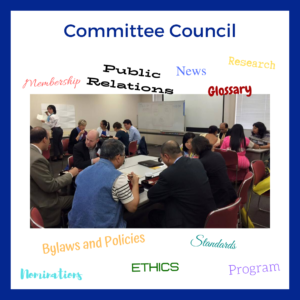
By Arun Mittal
The Asia Pacific Career Development Association (APCDA) regularly gathers insights from country and area representatives to track economic, labor market, and career development trends across the region. This article presents a thematic analysis of the key trends reported in February 2025, highlighting the evolving employment landscape, government policies, and innovative approaches to career guidance.
1.Economic Growth and Labor Market Trends
Economic Performance and Labor Market Shifts
Economic and employment trends continue to be shaped by global and regional factors, including technological transformation, policy changes, and industry evolution.
- Vietnam is undergoing major public sector reforms, merging ministries to improve efficiency, with labor management shifting to the Ministry of Education and Training. Ho Chi Minh City launched its first metro line, with further infrastructure improvements planned.
- Malaysia’s GDP grew by 4.3% in 2024, driven by digitalization, manufacturing, and green economy initiatives. However, youth unemployment remains a concern at 9.8%.
- Japan reported modest GDP growth of 0.3%, but concerns remain about economic stagnation and labor market sustainability.
- India continues to focus on infrastructure development, digital transformation, and employment programs as outlined in its latest budget.
- Pakistan projects 2.09% GDP growth for 2024-2025, signaling slow but steady recovery.
- China has shifted its economic focus to New Energy Vehicles (NEVs), emerging as the world’s largest automobile exporter, surpassing Japan.
Employment and Workforce Trends
- Australia recorded an unemployment rate of 4%, with youth unemployment dropping to 9%. Job vacancies remain 25% above pre-pandemic levels.
- Hong Kong maintained a 3.1% unemployment rate, while underemployment held steady at 1.1%.
- Malaysia’s gig economy is growing, with 26% of the workforce engaged in freelance and contract-based work.
- The United States continues to add 200,000 jobs monthly, with strong growth in healthcare and renewable energy, but uncertainty due to government policies.
- Japan is seeing rising wages for new university graduates as companies compete for skilled talent.
2. Career Development and Education Trends
Professional Certification and Career Counseling
Career development professionals are gaining increased recognition across various regions:
- Canada launched a National Certification for Career Development Professionals, providing a standardized credentialing system.
- India’s National Career Service (NCS) Portal is transforming employment exchanges into career centers.
- Pakistan’s top universities—IBA, NUST, and IoBM—are expanding structured career services to improve graduate employability.
- Japan has introduced the Career Dock program, aimed at integrating career assessments and career counseling in workplaces.
- Vietnam has launched an Open Library for Lesson Plans to provide structured career guidance to high school students.
University and Youth Career Programs
- Singapore has expanded work-study programs in universities and polytechnics to increase youth employability.
- Macau’s Alumni Mentorship Scheme at the University of Macau connects students with professionals.
- India’s regional career initiatives include:
- Tamil Nadu: “Naan Mudhalvan” skill training program.
- Karnataka: Online career portals for job seekers and students.
- Kerala: Career Development Centers (CDCs) providing free career counseling.
Workforce Upskilling and Training Initiatives
- The United States sees increasing demand for AI, cybersecurity, and data science certifications.
- Australia identified 37 emerging job roles in Net Zero, AI, and medical science.
- Malaysia allocated RM 1.5 billion for workforce upskilling and micro-credentialing.
- Pakistan’s e-Rozgaar Program aims to equip youth with digital skills to enter freelancing and technology fields.
- India sees increasing employment opportunities in AI, blockchain, and automation.
3. Government Policies and Workforce Regulations
Key Policy Developments
- Vietnam has restructured government ministries to improve labor market efficiency.
- Canada anticipates changes in public career services due to upcoming federal elections.
- Hong Kong will implement the abolition of MPF offsetting in May 2025, benefiting employees.
- Malaysia is strengthening public-private partnerships to boost digital workforce development.
- The United States faces hiring freezes and uncertainty due to government policy shifts.
- India’s tax incentives and workforce reforms aim to enhance employment growth.
Gig Economy and Workplace Flexibility
- Malaysia’s gig workforce continues expanding, comprising 26% of total employment.
- The United States sees hybrid work models gaining traction, though big tech firms push for office returns.
- Australia’s part-time workforce now constitutes 31% of total employment.
4.Technology, AI, and the Future of Work
Impact of AI and Automation
- The United States is witnessing increasing automation, requiring career shifts for displaced workers.
- Malaysia estimates that 12% of its workforce is at risk due to automation.
- China is positioning itself as a global AI leader, with 2025 expected to be the “Year of AI” for Chinese industries.
AI-Driven Career Development
- Malaysia is integrating AI into job-matching and career counseling platforms.
- China’s DeepSeek R1 AI model is making AI more affordable and accessible for career services.
5.Inclusion, Well-Being, and Workplace Diversity
Workplace Well-Being Initiatives
- The United States is prioritizing mental health and well-being in career development.
- Australia is promoting neurodiversity and disability inclusion programs.
Diversity and Inclusion Policies
- Malaysia is expanding employment opportunities for persons with disabilities (PWDs).
- Singapore is fostering inclusive hiring practices through government and corporate partnerships.
6.Global Career Development Events and Networking
Conferences and International Collaboration
- Canada’s Cannexus Conference remains one of the largest career development events in the world.
- Macau’s UNU Training Camps have focused on AI and sustainability in career planning.
- Canada is advocating for an International Career Development Day at the United Nations.
Closing Notes
The APCDA February 2025 report highlights the dynamic shifts in employment, education, and workforce policies across the region. While economic uncertainties and automation pose challenges, many governments and career development professionals are embracing upskilling, AI-driven solutions, and inclusive policies to support workers in an evolving job market. Collaboration across borders, investment in career guidance, and flexible work models will continue shaping the future of career development in the Asia-Pacific region.
For further insights and updates, stay connected with APCDA’s research and upcoming conference.

Insight Exchange is a new program that will launch in March 2025. This article shares more information about the program so that you can determine if you want to engage with it.
How does it work?
- Every other month, there will be a meeting organized on a topic.
- The topic and associated resources will be given in advance.
- The resources will be in the form of scholarly and non-scholarly articles, videos, webinars, podcast and/or other formats.
- You will be expected to come to the session having reviewed the materials. It sounds a bit like university, but the idea is that having a common context will make for a productive discussion.
- This is a peer learning forum, and you will be expected to contribute, discuss, challenge, and question, with the intent that at end of the meeting you will know more than when you registered for it. This is not the right forum for quiet listening in.
- There will be a topic expert to answer unresolved questions. They will not attend the meeting but will give their insights post the meeting.
- Please note that registration is capped at 20 pax and meetings will not be recorded.
How will the topics be selected?
The APCDA membership survey has identified career theories and practices; labour trends; professional skills; wellness issues; assessment tools; job search; and intersectionality topics as themes that members are interested in. The IE topics will be aligned to these themes. IE will also try to align some topics with APCDA webinars to give members opportunity to carry forward discussions from webinars.
What happens after registration?
You will get a confirmation email with the date and time of the session as well as the list of resources for review. Please note that non-members can access session resources only through confirmation email. Members can access session resources through confirmation email OR APCDA website, which has a dedicated Insight Exchange section under ‘Resources’ tab.
Why should you join an IE meeting?
This forum is for those who want to delve deeper into a topic but with a community. We are hit with so much information that sometimes it is good to slow down a little and make sense of what it all means. The Insight Exchange will allow you to consume, chew, and marinate in a topic allowing for better digestion!
We have breakout rooms in webinars and conferences but there is limited time. The Insight Exchange sessions will be 1.5 hours. This is the same duration as the webinars, but we will use the time only for discussion.
If you want to explore slow and peer based learning, then do join us.
Questions?
For further questions, you can email Ruchira Tripathi at insightexchange@asiapacificcda.org. She will be designing and facilitating the sessions.
 APCDA is an association of people who love their work and are eager to share their expertise with others. It is our goal to make that sharing as easy as possible.
In November 2023, we moved to a new website and new member database software which offers a “Member Portal” to facilitate communication among members and displays our other member services. Your Member Portal is a vital part of the services offered by APCDA. The new software offers several valuable features that were previously scattered over 2 software systems.
Unfortunately, networking with each other became more difficult when we switched because we were not able to copy the photo and bio of our members to the new system. Have you updated your Member Profile in the Member Portal? If not, we urge to do this now. Another vital piece of information is the Country where you live. Unfortunately, our new software hides that information under Address. Since we do not communicate by mail, “Address” does not seem very important. But your Country is important (and your city). December is a month for giving. We hope all of our members will make it easier for other members in need of your advice and assistance to find you by adding a photo of your face, a bio describing your areas of focus, and your country. Please help us to make member networking easier.
APCDA is an association of people who love their work and are eager to share their expertise with others. It is our goal to make that sharing as easy as possible.
In November 2023, we moved to a new website and new member database software which offers a “Member Portal” to facilitate communication among members and displays our other member services. Your Member Portal is a vital part of the services offered by APCDA. The new software offers several valuable features that were previously scattered over 2 software systems.
Unfortunately, networking with each other became more difficult when we switched because we were not able to copy the photo and bio of our members to the new system. Have you updated your Member Profile in the Member Portal? If not, we urge to do this now. Another vital piece of information is the Country where you live. Unfortunately, our new software hides that information under Address. Since we do not communicate by mail, “Address” does not seem very important. But your Country is important (and your city). December is a month for giving. We hope all of our members will make it easier for other members in need of your advice and assistance to find you by adding a photo of your face, a bio describing your areas of focus, and your country. Please help us to make member networking easier. Have you looked closely at your Member Portal? When we moved our website, we offered a Basic video to introduce the features to you. We have just added an Advanced video to explain in detail the many features which are unique to this new software and help you connect to each other. Special features of the Member Portal include:
- Member Discussion Space: You can find this under “Workspaces” in the Portal. We invite you to share any issue you may be facing at work. Ask for advice, and others who have experience in that area will join the discussion.
- If you prefer a more targeted approach, try searching the “Directory” for members who work in a similar setting. The Directory displays names, emails, and organizations for all of our members. One click takes you to the photo and bio for any member. Please feel free to reach out to other members who you think might have similar interests. We are all separated by large distances, but the member directory can bring us closer together.
- The Store lists past webinars. Most are free to members, and many of the presenters are famous in our field. It is a treasure chest filled with valuable information.
- My Account is the place to update your own information. Look for “My Profile” -> “Member Profile”, and don’t forget to make sure your Country is listed under “Contact Info.” My Account also contains certification of the webinars you attended and many other pieces of information about you and your membership.
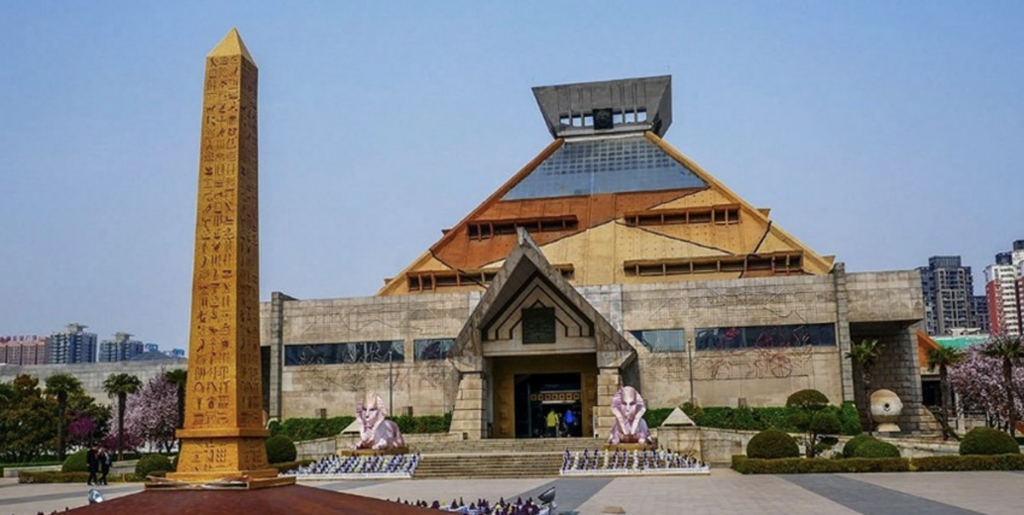 The heart of China is believed to be in Henan Province. If you want to understand the cultural heritage of China’s 5,000-year history, Henan Museum in Zhengzhou City is a must-destination that you cannot afford to miss. The museum houses over 170,000 artifacts, including distinctive prehistoric relics, bronzes from the Shang and Zhou dynasties, ceramics from various dynasties, jade items, and more.
The heart of China is believed to be in Henan Province. If you want to understand the cultural heritage of China’s 5,000-year history, Henan Museum in Zhengzhou City is a must-destination that you cannot afford to miss. The museum houses over 170,000 artifacts, including distinctive prehistoric relics, bronzes from the Shang and Zhou dynasties, ceramics from various dynasties, jade items, and more.
The pyramid-shaped main hall, inspired by the Yuan Dynasty Observatory in Dengfeng, symbolizes the Central Plains as the source of Chinese civilization. Its earth-toned exterior reflects the Yellow Earth and Yellow River, while the light blue window and skylight strip on the facade evoke the grandeur of the Yellow River flowing from the sky.
The permanent exhibition of Henan Museum “A great civilization rises with capitals established in the central plain” consists of ten galleries in seven parts: The Neolithic Age, Xia-Shang, Western Zhou, Eastern Zhou, Qin-Han-Wei-Jin-Northern and Southern dynasties, Sui-Tang, Song-Jin-Yuan, which are chronologically arranged. They display the evolution of the dynastic capital city and introduce the profound history and culture of the Central Plains.

Henan’s rich musical history is showcased through a remarkable collection of ancient musical artifacts, making it one of the most distinctive museum collections in China. Over 90% of Henan’s unearthed musical relics are ancient instruments, including the 9,000-year-old Jiahu bone flute from Wuyang, 5,000-year-old clay drums and xun, a Longshan culture stone chime, bronze bells from the Xia dynasty palace, and sets of bells and fish-shaped qing from Anyang’s Yin ruins. The collection also includes chime bells from the Western Zhou’s Ying and Guo states, along with various bells, stone chimes, and zithers from the Zhou period.
For more information, click on these links: 2025 APCDA Conference, Zhengzhou, China and the Henan Museum Tour.
We are delighted that 30% of our APCDA members completed this year’s survey and 5% of our non-member contacts (who we call Friends). This robust response from 32 different countries gives us confidence in the results. Over 75% of the member respondents came from these areas (in descending order): ASEAN Countries, United States, Australia, and India. This corresponds well to the distribution of members in English-speaking countries, and gives us confidence that these results accurately represent the preferences of our members and friends. However, we must keep in mind that those less fluent in English are underrepresented and may have additional needs.
The setting is very useful in understanding the needs and interests of career practitioners. We asked respondents to indicate all settings in which they work (or plan to work).

While we hope to serve all settings, this information allows us to keep in mind the different needs in these settings.
Each paragraph below summarizes responses to one of the questions. All responses are listed in order with the most popular response listed first. Only responses selected by multiple respondents are included in this brief summary. If you want more details, read the Comprehensive Report.
When asked what they valued most about being career practitioners, they selected
- Work Tasks: Help clients understand their strengths, values, and interests
- Contribution to society: Make the world happier by helping clients find work they enjoy
- Learning: Continuously learn about new ideas and trends
- Empowerment: Help clients overcome obstacles and build resilience
When using their own words to describe what they like about their work, respondents often described specific work tasks. This tells us that career practitioners literally enjoy what they do! In addition to the above categories, they mentioned
- Research
- Developing tools for career development
- Community engagement
- Helping other career practitioners
- Enabling underprivileged clients
- Innovation
- Work life balance
- Improving the mental health of others
The aspects of APCDA Membership which our members value most are:
- Professional development (conference, webinars)
- Multi-cultural interactions
- Collaboration and peer support
- News about career development in this region
- Encouraging practitioner research
- Cost-effective membership fees
When asked what else they wanted from APCDA, many responded that APCDA is doing well at serving their needs. A wide variety of improvements were suggested, including:
- More engagement/discussion activities
- Increasing awareness of APCDA
- A mentoring program
- Encouraging practitioner research
- Lower membership fees
- A member manual & new member mentoring
The Board will take a close look at implementing these and the many other creative suggestions.
Regarding webinars, the most popular topics are related to Career theories or practices and Labor market trends or technology. Additional specific topics requested include:
- Using AI & technology in career development
- The impact of AI and automation on the workplace
- New skills needed
- Mental health and career development in the workplace
- How to run a private practice
- Career development and disability/neurodiversity
- Emerging labor market trends
- Training sessions for career development professionals
- How career development can impact management decisions
- Special interest groups
In addition, the Program Committee is grateful for the list of specific people recommended as speakers.
The most important factors in deciding which webinars to attend are:
- Topic
- Speaker(s)
- Time of day
We are well aware of the issues in scheduling webinars for a region with so many time zones. We know that many people watch the recorded webinars because they can’t make time in their day to watch when the webinar is offered. This is a major concern, but not one we are likely to resolve. We promise to record all webinars to make it easier to get the benefit from the presentation when you cannot be present at the webinar. Price is not a major concern for our respondents, although our respondents primarily represent English speakers and that may skew the response. We have not yet found a good solution for speakers of other languages who need translation services.
While the 2025 conference will be in Zhengzhou, China, we hope to hold the 2026 conference in Australia. Our respondents rated Melbourne and Sydney highest, and it looks like Sydney will work best for our friends in Australia who are about to hold their 2025 conference in Melbourne this October. Other considerations mentioned by respondents included cost of travel, convenience, ease of getting a visa, and safety. We will keep these concerns in mind when searching for conference locations.
Members generously volunteered to serve on our committees. We always need more help on our committees and are delighted to welcome new members.
Thank you to all of you who responded to this survey. We need your continuous feedback and guidance to keep our services relevant. If your responses are not reflected in this brief summary, please know that we did record every response and the leaders will strive to address as many as possible.
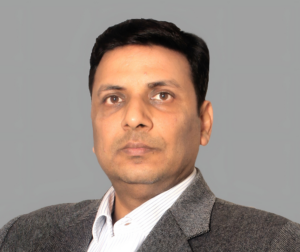 By Arun Mittal
We believe that access to professional development can transform lives, inspire communities, and shape the future. As a non-profit charitable organization, we are dedicated to supporting career professionals, students, and emerging leaders in the Asia Pacific region. Your generous donations enable us to provide vital scholarships, empowering the next generation of career professionals to make a difference in their communities and beyond.
Why Your Support Matters
In a world characterized by Volatility, Uncertainty, Complexity, and Ambiguity (VUCA), career professionals play a crucial role in helping individuals navigate complex career paths and find purpose in their work. However, many talented individuals, particularly those from non-high-income countries and conflict zones, face significant barriers to accessing the professional development they need to thrive. That’s where APCDA steps in, but we can’t do it alone—we need your support.
Scholarships that Change Lives
APCDA has established several scholarship funds to support students, emerging professionals, and career practitioners working under challenging conditions. These include scholarships specifically designed for students from non-high-income countries, emerging leaders who are recent graduates, and professionals from conflict zones who need access to global perspectives and professional development opportunities. Donations to these funds ensure that recipients can attend our conferences, participate in workshops, and connect with a global network of peers, providing them with the skills and insights they need to excel. Contributions can vary from small amounts to larger endowments, making a meaningful impact on the recipients’ lives and careers.
By Arun Mittal
We believe that access to professional development can transform lives, inspire communities, and shape the future. As a non-profit charitable organization, we are dedicated to supporting career professionals, students, and emerging leaders in the Asia Pacific region. Your generous donations enable us to provide vital scholarships, empowering the next generation of career professionals to make a difference in their communities and beyond.
Why Your Support Matters
In a world characterized by Volatility, Uncertainty, Complexity, and Ambiguity (VUCA), career professionals play a crucial role in helping individuals navigate complex career paths and find purpose in their work. However, many talented individuals, particularly those from non-high-income countries and conflict zones, face significant barriers to accessing the professional development they need to thrive. That’s where APCDA steps in, but we can’t do it alone—we need your support.
Scholarships that Change Lives
APCDA has established several scholarship funds to support students, emerging professionals, and career practitioners working under challenging conditions. These include scholarships specifically designed for students from non-high-income countries, emerging leaders who are recent graduates, and professionals from conflict zones who need access to global perspectives and professional development opportunities. Donations to these funds ensure that recipients can attend our conferences, participate in workshops, and connect with a global network of peers, providing them with the skills and insights they need to excel. Contributions can vary from small amounts to larger endowments, making a meaningful impact on the recipients’ lives and careers. Additionally, for donors interested in creating a personal legacy, there is an opportunity to establish a new scholarship in honor of a loved one. These new scholarships can be tailored to a specific audience, ensuring your donation reflects your personal values and commitment to fostering the next generation of career professionals. Establishing a new scholarship involves creating an endowment where only the interest is used for scholarships, ensuring sustainability and long-term impact.
Your Role in Shaping the Future
Supporting APCDA’s scholarship funds is more than just a donation—it’s an investment in the future of our field. Your generosity helps talented individuals gain access to critical professional development, empowering them to return to their communities with new skills, knowledge, and connections. Whether you choose to contribute to an existing scholarship or establish a new one, your support will create a positive change across the Asia Pacific region.
Make a Difference Today
If these opportunities resonate with you, we invite you to contribute to one of our scholarship funds. Let us know how you would like your donation to be used, and we will work with you to ensure it has the maximum impact. Together, we can empower career professionals to achieve their full potential and continue making a difference in the lives of others.
Donate Now and Be Part of the Change
To make a donation or learn more about our scholarship opportunities, please visit [APCDA’s donation page] or contact us directly. Your support is crucial, and together, we can help create a brighter future for career professionals around the world.
To Donate Click Here
By Gaini Yessembekova and Liliya Tleukenova
KazCDA: A New Chapter in Career Development
The creation of KazCDA, spearheaded by Gaini Yessembekova and Liliya Tleukenova from Nazarbayev University’s CAC, represents a transformative shift in career services across Kazakhstan’s educational institutions. KazCDA’s mission is to enhance students’ professional growth and offer advanced training for career counselors. By strengthening partnerships among universities, the association seeks to elevate career education both in Kazakhstan and throughout Central Asia. KazCDA’s strategic priorities include:- Workshops and Seminars: Organizing training events led by APCDA experts to introduce advanced counseling techniques and improve professional skills.
- Strengthening Partnerships: Collaborating with universities to develop integrated and effective career programs.
- Digital Repository: Creating a comprehensive database with educational materials and resources from APCDA to support career professionals.
- Information Campaigns: Raising awareness about career development opportunities and expanding engagement across Kazakhstan.
- Educational Programs: Implementing standardized career counseling programs tailored to local contexts.
- Expanding Reach: Extending KazCDA’s services and influence throughout Central Asia.
First KazCDA Meeting: A Promising Start
On June 18, 2024, the first official KazCDA meeting was held, attracting 16 representatives from 13 universities across 8 cities in Kazakhstan. The meeting demonstrated widespread interest in advancing career counseling in the country. Participants discussed the benefits of association membership, including access to APCDA resources, and outlined strategic priorities for the future. A key focus was on preparations for the APCDA 2025 conference and the development of long-term strategies to expand the network of career centers in Kazakhstan. Participants shared their expectations and identified priority areas, such as enhancing international cooperation and expanding professional development opportunities. KazCDA marks a new era in career counseling in Kazakhstan, providing universities with essential support to guide students toward successful careers in an increasingly globalized job market.KazCDA Fall Webinars: Expanding Professional Horizons
In Fall 2024, KazCDA will launch a series of webinars designed specifically for career counselors and professional development specialists. These sessions will offer local career specialists a unique opportunity to enhance their knowledge, stay updated on the latest global trends, and foster interaction and networking within the professional community. Our goal is to equip career professionals across Kazakhstan with the tools and insights needed to guide students and professionals through the rapidly evolving job market. Through these webinars, we aim to create a stronger, more connected network of career development experts who can collectively elevate career services across the country. Renowned speakers will include:
- Allan Gatenby (September 16): Entrepreneurial Mindset in Career Development: Turning Challenges into Opportunities
- Anh Tuan Le (October 10): Social Media for Career Development: Modern Approaches from Blogs to Podcasts
- Marie Zimenoff (November 13): Innovations in Career Counseling and Resume Writing
About the Speakers:
- Allan Gatenby is a globally recognized career and leadership coach with extensive experience across Australia, Asia, and the UAE. Set to become the next President of APCDA, Allan is known for his transformative impact on individuals and organizations, and his dynamic approach has made him a sought-after speaker in career development.
- Tuan Anh Le is a leading career practitioner from Vietnam, specializing in employability skills workshops for students. A career consultant at RMIT University, Tuan Anh also runs a popular career blog with 5 million views and was named an Outstanding Career Practitioner by APCDA in 2024.
- Marie Zimenoff is an entrepreneur and speaker with a unique career trajectory. She founded Career Thought Leaders and the Resume Writing Academy after leaving Colorado State University during the Great Recession. Marie is known for her work in career management and her efforts to advance the career services industry.
These webinars will provide critical platforms for disseminating innovative practices and knowledge, further advancing career counseling in Kazakhstan.
KazCDA: Shaping the Future of Career Education in Kazakhstan
KazCDA is poised to become a cornerstone in building a robust and dynamic career development ecosystem in Kazakhstan. Through knowledge exchange, adherence to international standards, and close collaboration with APCDA, KazCDA aims to elevate the quality of career services in the region. The association will not only raise the professional standards for career specialists but also better prepare students and graduates to thrive in the global labor market.
Looking ahead, KazCDA envisions a transformative impact on career education across Kazakhstan. By integrating advanced career counseling methodologies and leveraging digital tools, KazCDA will ensure that career services are accessible, effective, and aligned with the evolving demands of the global economy. The association plans to expand its reach by partnering with more universities, industry leaders, and government agencies, creating a comprehensive support network for career development.
KazCDA is committed to continuous professional development for career counselors through specialized training programs, certifications, and workshops. This commitment will ensure that career specialists are well-equipped with the latest knowledge and skills to guide students effectively. Additionally, KazCDA will spearhead research initiatives to analyze labor market trends, providing valuable insights that inform career strategies and educational programs.
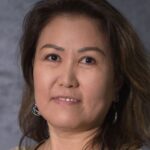 Gaini Yessembekova,
Gaini Yessembekova,
- Director of NU Career and Advising Center,
- Co-leader of KazCDA
- Co-Chair of PR Committee of Asia Pacific Career Development Association/APCDA
- Co-Chair of APCDA Area representative Committee
 Liliya Tleukenova,
Liliya Tleukenova,
- General Manager of the NU Career and Advising Center
- Co-leader of KazCDA
- Member of APCDA Program Committee
By Dr. Marilyn Maze
At the 2023 Annual Meeting we identified six issues faced in the Asia Pacific region. At the 2024 Annual Meeting, we divided into small groups to discuss these six issues. Below, the six issues are in bold font and the ideas for understanding the issues and moving forward are listed as bullets under them. Technical challenges interrupted the discussions, but these discussions did manage to clarify the issues we are facing and provide useful insights that APCDA hopes to use in the coming year to build tools to address some of these issues.
- Lack of resources, including lack of trained professionals
- Formalize training requirements and establish laws regarding credentialing
- Increase visibility of the issue through research
- Lack of public understanding of and respect for career services
- Cultural constraints:
- Parents often choose the vocation of their children. They wish to bring honor to the family, the family may have obligations to others, some use numerology, the parents’ wishes have a strong influence on the children, children have strong respect for their parents.
- Parents’ influence can also be viewed in a positive way. Parents may observe skills in the child that the child may miss.
- The passions of child may be viewed as irrelevant.
- Top performers get more attention.
- Children feel secure following the path of their parents and scared to step out of that safe zone. Some would rather feel secure working on something that’s boring rather than seeking a job they might love with more risks.
- From Yemen: The civil war has disabled the economy, leading to high unemployment, limited job prospects, and a brain drain of skilled professionals leaving the country. This, combined with disruptions to the education system and a difficult business environment, has created a very challenging environment for individuals to pursue stable and fulfilling career paths in Yemen.
- There is confusion between career counselors versus school counselors.
- The word “career” is not really familiar in many countries.
- There are not many career services that are accessible to all. It is challenging to raise awareness of the importance of career services.
- Many career centers focus on finding a job for students instead of helping students in their career exploration.
- Lack of quality standards for career services
- It is challenging to implement career guidance considering the rapid technology advances
- Distinction between mental health counseling and career counseling is unclear.
- Several discussants mentioned the Career Services Standards of other associations, but none mentioned the APCDA Career Services Standards. Perhaps we need to put more effort into teaching our members about our Career Services Standards and how they can be useful.
- Social Justice Issues (better services for wealthy, but fewer for the poor)
- No one reported on this discussion.
- Conflict between personal preference for working from home (WFH) and corporate preference for working from office (WFO)
- Corporations continue to fear a decrease in productivity with WFH
- Hybrid work leaves a lot of resources wasted (empty office building on certain days)
- Hybrid options could be proposed to balance mental health and productivity, and to increase work/life balance.
- The casualization of the workforce (parttime, temporary workers receive fewer benefits than fulltime, permanent workers)
- Some participants cited examples of organizations that treat parttime workers well.
- We need to focus on planetary issues and allow local problem solving.
 In July and September, 2023, APCDA held 2 webinars on Intersectionality, which explores power relationships and discrimination. These 2 webinars are available in the APCDA Store.
In July and September, 2023, APCDA held 2 webinars on Intersectionality, which explores power relationships and discrimination. These 2 webinars are available in the APCDA Store.
We learned that focusing on one area or another (gender, race and ethnic identity, (dis)ability, socio-economic status, etc.) allows us to examine how specific identities affect people in different ways. This focus also helps us to understand which elements contribute most to discrimination on each level. While doing so, however, we must keep in mind that the intersections of identities are indeed endless and should be considered in terms of each other. An intersectional approach recognizes that these multiple intersections exist in endless combinations, and that they can sometimes lead to privilege and sometimes to discrimination. We must continually question where the power lies in different societies, organizations and groups to understand why some individuals are treated better than others, find it easier to be successful, or are more readily included. Only by doing this can we start to see who is excluded or discriminated against. Intersectionality, therefore, encourages solidarity, highlighting that all struggles for freedom from oppression are interlinked and that they can all benefit by interacting with each other. By working together we can all begin to strengthen the fight against oppression in general.
After these workshops, we received a toolkit with 4 activities for exploring intersectionality. APCDA is eager to understand how useful this workbook may be to our members. We have identified four volunteers, in 4 different countries, who promise to use our new toolkit with a group of people by June, 2024. These activities can be used with a group of students, a group of colleagues, a church group, a corporate group, or any other setting in which you have the opportunity to interact with 8 to 25 other people at one time. As you know if you attended these webinars, the outcome of using these materials will be increased understanding among members of the group and increased respect for the uniqueness of each member in the group.
Are you available to explore this important topic, to build your own skills in using this concept, and to help a group of people you interact with to come closer to each other? This pilot project is happening now – please join us. If you are willing to volunteer, please reply to Info@AsiaPacificCDA.org
By Arun Mittal
 The Asia Pacific Career Development Association (APCDA) stands as an exemplary model of a global yet local association, fostering a robust ecosystem for career professionals to learn, network, and share best practices from across the region. With a distinctive GloCal (Global + Local) approach, APCDA seamlessly integrates global perspectives while staying attuned to the unique needs and nuances of the diverse communities it serves.
The GloCal approach embodies the concept of thinking globally and acting locally. For APCDA, this means connecting career professionals across borders, transcending cultural barriers, and sharing knowledge and insights on a global scale. However, it also involves recognizing the significance of local contexts, cultural sensitivities, and regional challenges that shape career development.
The Asia Pacific Career Development Association (APCDA) stands as an exemplary model of a global yet local association, fostering a robust ecosystem for career professionals to learn, network, and share best practices from across the region. With a distinctive GloCal (Global + Local) approach, APCDA seamlessly integrates global perspectives while staying attuned to the unique needs and nuances of the diverse communities it serves.
The GloCal approach embodies the concept of thinking globally and acting locally. For APCDA, this means connecting career professionals across borders, transcending cultural barriers, and sharing knowledge and insights on a global scale. However, it also involves recognizing the significance of local contexts, cultural sensitivities, and regional challenges that shape career development. Some of the examples of the GloCal Approach
- Annual Conferences: These events feature international keynote speakers, workshops, and presentations on emerging tends in career development. Simultaneously, the conferences also include local experts who provide insights into the unique job markets, career aspirations, and industry demands specific to the host country.
- Webinars and Online Resources: The association provides a wealth of online resources, including webinars, articles, and glossaries that cater to the diverse needs of its members. While some resources address universal career challenges, others are tailored to address region-specific issues (Arabic Glossary of Career Terms), ensuring that career professionals can find relevant information applicable to their local communities.
- Collaborative Research Projects: APCDA encourages research collaboration among its members across the Asia Pacific region. This allows for the synthesis of overarching career development principles while acknowledging the influence of cultural differences on individual career journeys.
This approach has been of immense help to both the associations and career professionals in our region. The benefits to the individual career practitioners include,
- Enhanced Cultural Sensitivity: Career professionals working in the Asia Pacific region encounter a rich tapestry of cultures and traditions. The GloCal approach helps them develop a heightened sense of cultural sensitivity, enabling them to support clients with respect and understanding, regardless of their background.
- Global Best Practices: By tapping into a global network, APCDA members gain exposure to the latest innovations and successful practices from around the world. They can adapt and implement these best practices to suit local contexts, leading to more effective and relevant career counseling and guidance.
- Access to a Diverse Network: The APCDA network opens avenues for career professionals to connect with colleagues, mentors, and experts across borders. This diverse network fosters professional growth and collaboration, leading to new opportunities and enriching career experiences.
- Leveraging Regional Expertise: The association’s local chapters possess in-depth knowledge of their respective regions. By collaborating with these chapters, career associations and professionals from other parts of the world can gain valuable insights into specific regional challenges and trends, which can be invaluable for international career counseling.
The benefits to other associations in the region are as follows,
- Cross-Pollination of Ideas: Associations in the Asia Pacific region can benefit from partnering with APCDA by exchanging ideas, resources, and expertise. This cross-pollination of ideas can lead to fresh perspectives and innovative solutions to mutual challenges faced by career professionals.
- Access to Global Partnerships: By joining hands with APCDA, regional associations can gain access to a global network of career professionals and organizations. This opens doors to potential international collaborations, joint research projects, and opportunities for their members to expand their horizons.
- Professional Development Opportunities: APCDA’s focus on learning and development means that associations in the region can tap into a wide array of training programs, workshops, and webinars that contribute to the growth of their members’ professional skill sets.
Closing Notes
The association’s GloCal approach has proven to be a winning formula in creating a strong ecosystem for career professionals in the region. By embracing global perspectives while respecting local nuances, APCDA has become a powerful platform that empowers its members to thrive in an increasingly interconnected world. Through collaboration and association with APCDA, other career development organizations in the region can also unlock new opportunities, strengthen their impact, and enrich the lives of career professionals they serve.
#CDAA, #CDANZ, #IAEVG, #JCDA, #NCDA, #NPOCA, #PCDA
 Did you know that you automatically become a member of the International Association of Educational and Vocation Guidance (IAEVG) when you join APCDA? Each year, APCDA pays dues to IAEVG for all of our members.
Did you know that you automatically become a member of the International Association of Educational and Vocation Guidance (IAEVG) when you join APCDA? Each year, APCDA pays dues to IAEVG for all of our members.
IAEVG has a 75-year history of providing global leadership in and advocating for guidance by promoting ethical, socially just, and best practices throughout the world so that career, educational and vocational guidance and counselling is available to all citizens from competent and qualified practitioners.
Behind the scenes, IAEVG and many of its members have helped in the development of APCDA. When we want to develop resources for our members, such as our Ethical Guidelines, we turn first to IAEVG for guidance. As the oldest career development association that is truly international, the materials provided by IAEVG are very relevant and helpful in jump-starting our development.
Members are invited to download a copy of the Member Logo from the APCDA Website. The legal agreement published on our website makes it possible for our members to use this logo on your website, signature, or letterhead. We currently have five kinds of member logos:
- Individual Members
- Organization Members
- Lifetime Members
- Legacy Partner Lifetime
- Professional associations which offer Joint Membership with APCDA (Affiliates)
If you fall into groups 1 to 4, please go to our website at AsiaPacificCDA.org and click “Member Portal.” Choose Workspaces, and your member logos (as JPG or PNG files) should be waiting there for you to download. If you fall into the fifth group, you should have received the logo from us by email.
Lorem ipsum dolor sit amet, consectetur adipiscing elit. Ut elit tellus, luctus nec ullamcorper mattis, pulvinar dapibus leo.
